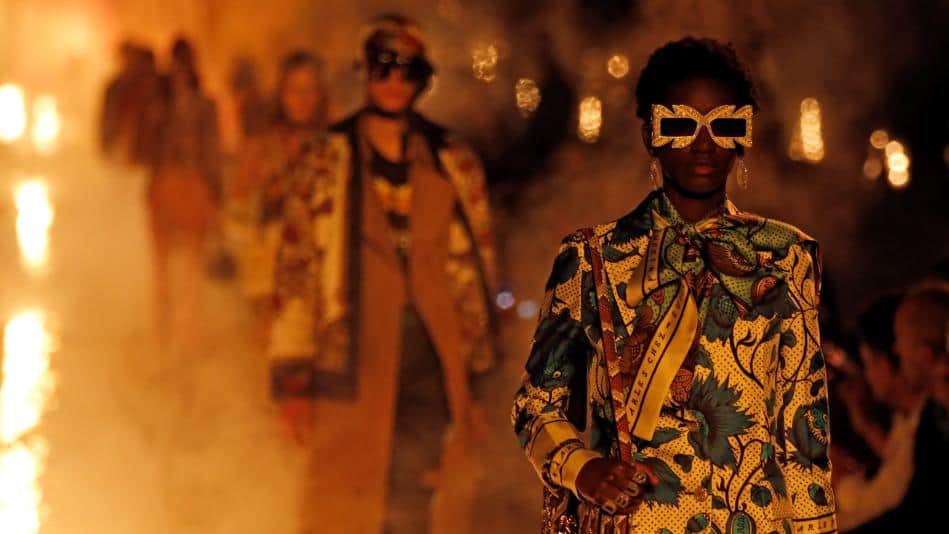Last updated on September 11th, 2021 at 03:18 pm
After a two-year streak of astronomical sales growth, Gucci’s latest figures show it growing at a more earthly rate.
The luxury Italian brand grew 13.3% in the most recent quarter, compared to 34.9% in the same quarter last year and 42.8% in 2017. Sales reached nearly €2.4 billion (about $2.6 billion) for the quarter.
Between 2016 and 2018, the business boomed on the frenzy surrounding Alessandro Michele’s makeover of the brand, not long after he took over as artistic director. Shoppers eagerly grabbed the new Gucci, which traded the sleek sex-appeal of the past for a quirky, less rigidly gendered image that attracted a new batch of young customers. With each new collection, more sales followed.
But a slowdown was always inevitable. The bigger Gucci got, the harder it became to continue growing at the previous rates. While the brand is still hot, its once exceptionally high growth now looks to be flattening out.
It has also faced some recent challenges in the United States. On a call with investors, Jean-Marc Duplaix, CFO of Gucci’s parent company, Kering, said the decline in tourism to the US hurt its sales in the country, as did a dip in consumer sentiment.
The brand has made efforts to get shoppers coming back with marketing campaigns and events around new products. “Of course we have more diversity engagement,” Duplaix added. Gucci has been working to make amends for a sweater it released with a face mask that recalled blackface. Michele said it was supposed to be a tribute to performance artist Leigh Bowery. But the ill-conceived design angered many black Americans, prompting an apology from Gucci and leading it to create an internal program to raise cultural awareness and diversity within the company.
Still, sales to American tourists in Europe were good. Asia-Pacific also delivered a solid performance as sales in mainland China helped offset a slowdown in Hong Kong amid the ongoing protests. Even with its overall sales growth decelerating, Gucci still beat (paywall) analysts’ expectations.
(Quartz Africa)

